When Israeli bombing intensified in the days after the Hamas attacks, Maha Rafeek was forced to leave her home in Gaza, fleeing first to her sister and then parents’ house, before joining the tens of thousands of Palestinians heading south.
Here, she describes her heartbreak at being unable to find enough food for her four children, Rama, Tala, Zain and Ameer.
“Since the beginning of the war, things have gone from bad to worse. We were forced to leave our homes, so we left and fled south. We didn’t know where we would go, for how long, or even how we would live. But we left, believing we had escaped inevitable death.
Unfortunately that was when our suffering began – the struggle to find food and anything to drink. Even water that was clean. We started to ask other people where and how to get water, and those people started to exploit us.
Things have gone from bad to worse
As for bread. Every day we go out and line up, and people start to bicker and fight between themselves to get it. By the day’s end we are still empty handed. Our bakeries are closed, there is not enough.
Our lives have become a tragedy that is repeated every day.
We wake up early in the morning to try to get what we need, and hope there is some electricity. When I can, I use the internet to find fitness routines to help us pass the time. I see in my children they need food and they need something to drink, but I do not have the capacity to provide what they need.
We are in a place that has no windows or doors and the cold is beginning to enter our bodies. We need to find a solution to this problem, but there is no escape. The freezing cold is at the doors, and we don’t have enough blankets or mattresses. We didn’t have time to take clothes from our homes, or belongings, or even the children’s toys. Nothing.
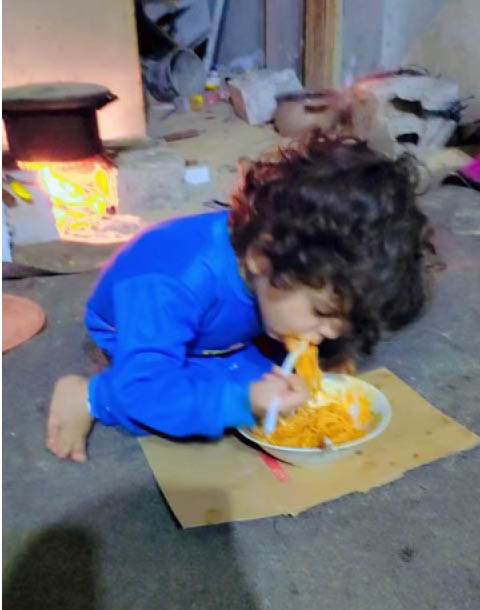
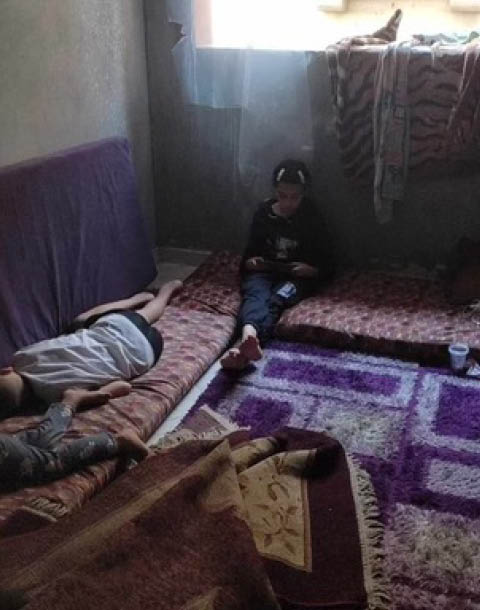
I started today by lighting a fire at the stove to cook what food we have, and to heat some water so [the children] can wash. I am so tired but for a moment the light came in when I saw my children’s joy over a plate of pasta. I was so happy they were eating, but all the time, the bombing continued.
The bombs fall more frequently in the south, but for now we are in a place where the bombing raids happen only once or twice each day and night.
There is extreme hunger and intense bombing. How long can we endure? How long will this situation continue, and for how long can I protect my children from the bombs and from the smell of death? They ask me, when will we go home? When will we play again with our toys, and wear our clothes? When will we go to school?
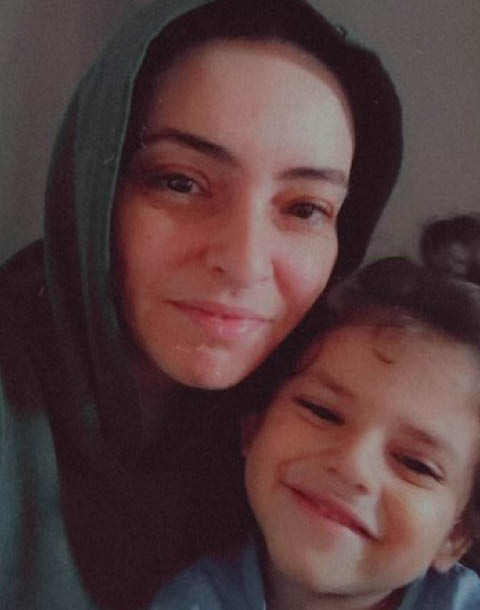
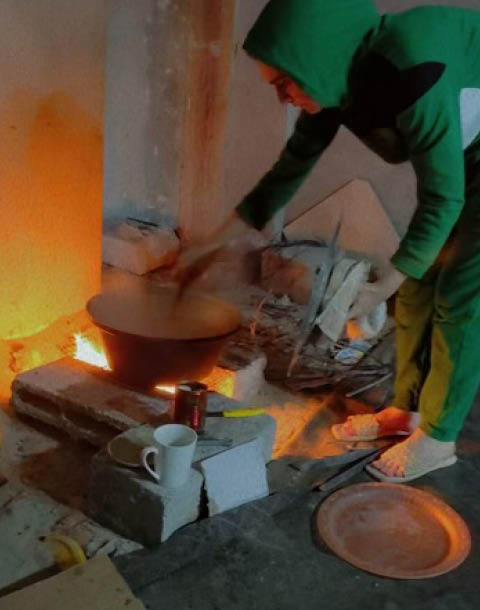
Hopefully, there will be a time when the war will end and we will go home, and live again. For now, this is our life.”
Last week, Maha wrote about the moment she was forced to leave her home, which had been damaged in the bombardment. Moving from one place to another, she describes the difficulty in finding a safe place to stay:
“I am a girl from Gaza, married, and I have four children. My husband is a traveller. I live in Al-Rimal, Al-Shuhada Street.
I woke up on October 7, 2023 to the sound of bombing at 6 am, and the sky was red. The bombing was ours. I remained under bombing in the same area for three days until they bombed the Islamic Bank and my house was damaged. The neighbours came and called me, and told me that the whole area was under threat, and that it was necessary [to leave].
[I took] my children out in the street and they started crying, terrified of what was going to happen. My daughters and I were crying in fear until I found a rogue car that stopped me and took me to my sister’s house. I stayed with my sister and tried to calm the children down.
The next day we were sitting and suddenly the house we were in exploded because they bombed the building in front of us and the smoke flew onto our bodies and faces. We stopped seeing each other. We ran and got out of the building and we all went to my other sister’s house, but in the same area.
We sat the whole time terrified because the area was under bombardment all the time until the second day we got a call to evacuate the whole building. We became four families displaced from their homes.
We went to the last place we could go. It was my family’s house, and we sat all the time, too. We were terrified and aware of the news, under heavy bombardment, without electricity or water, and we did not know how to get food or bread until we were stuck like this for the second day.
The next day we said we would go to the bakery. We found people in the streets carrying their belongings and backpacks and riding to the south. When we asked, they told us that [Israelis] had announced Gaza will be hit, no matter what.
We began to look for a car that would take us. Of course, we left without food. We said we would save the lives of our children from the inevitable death that was destined for us.
Of course, the roads were crowded and very difficult. The bombing was working above us. Thank God, we arrived.
[There was a safe place for us] but there is no water, no electricity, no mattresses or blankets. We sat down and said, “Thank God we are still alive.”
We started looking around to fill water to wash the children and electricity for light and to charge our cell phones. We are now living on the ground. There are no blankets or mattresses. It is enough to protect our situation.
Because of the cold and living in cans, my greatest wish in life has become to sleep on a mattress and cover myself and keep warm. I have become interested in taking a shower.
We have started wiping our bodies with a rag [because] we cannot shower. I have started to miss the bathroom, wash and brush my teeth, our most basic rights in life. We have returned to the Stone Age.
How will we protect our children? They are being bombed in the south, living outside our homes, without food, drink, or bathroom, and in the open air without windows, and they are also bombing us here. Why [us]? What is our fault in all this? Why do we live like this? We smell the scent of death everywhere and we are hungry and cold.
My hope [is that we] live safely without fear and enjoy our most basic rights as human beings.”




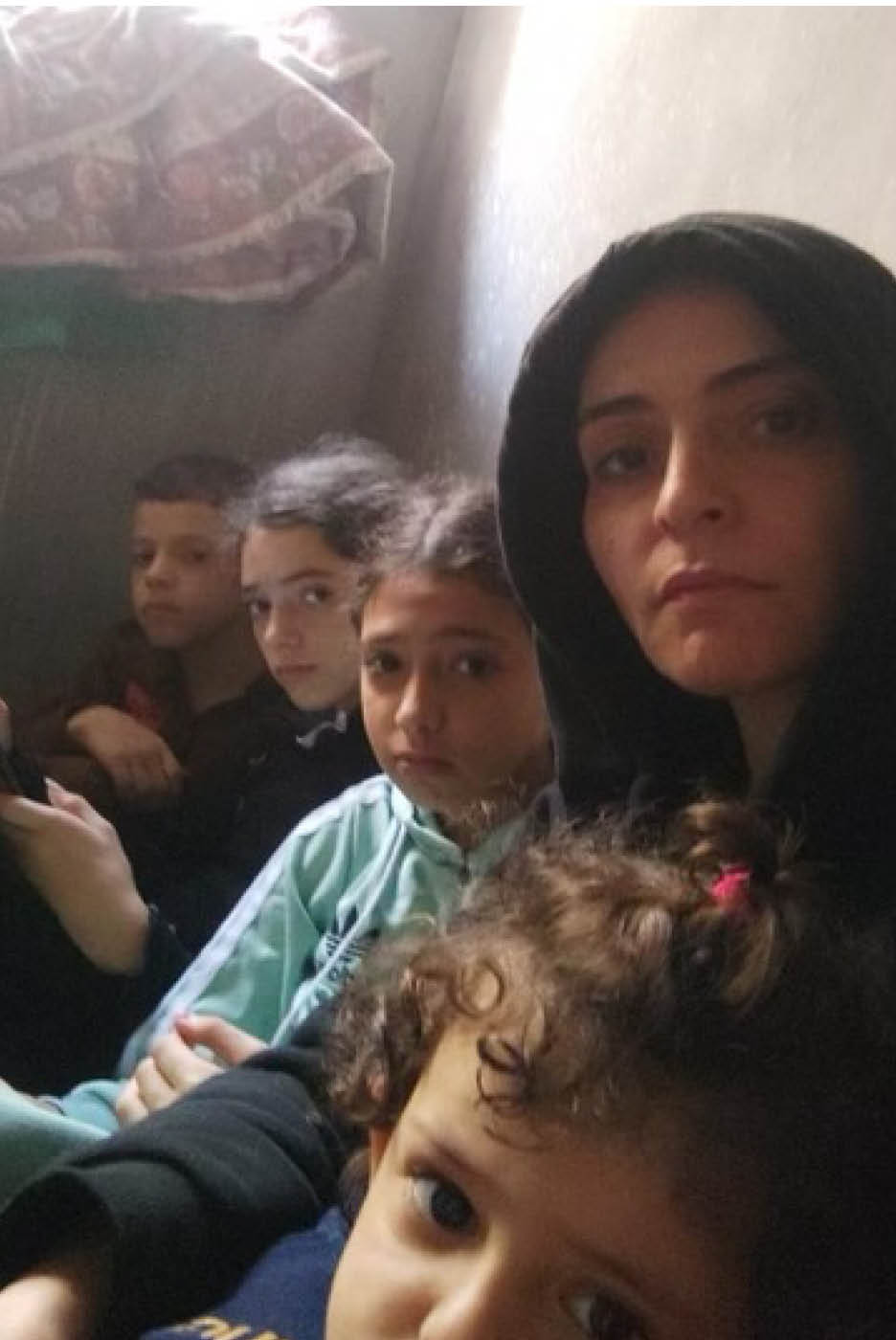





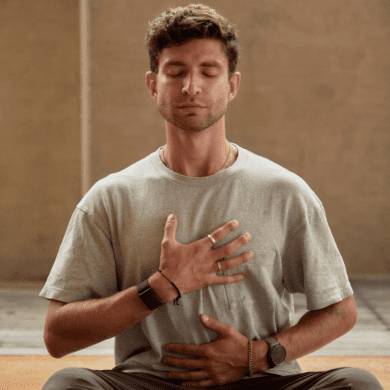
No Comments